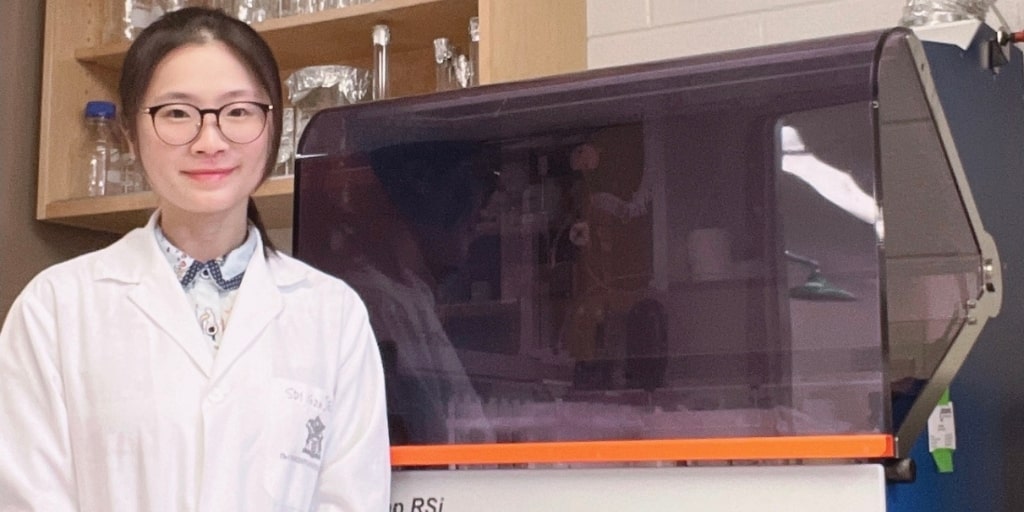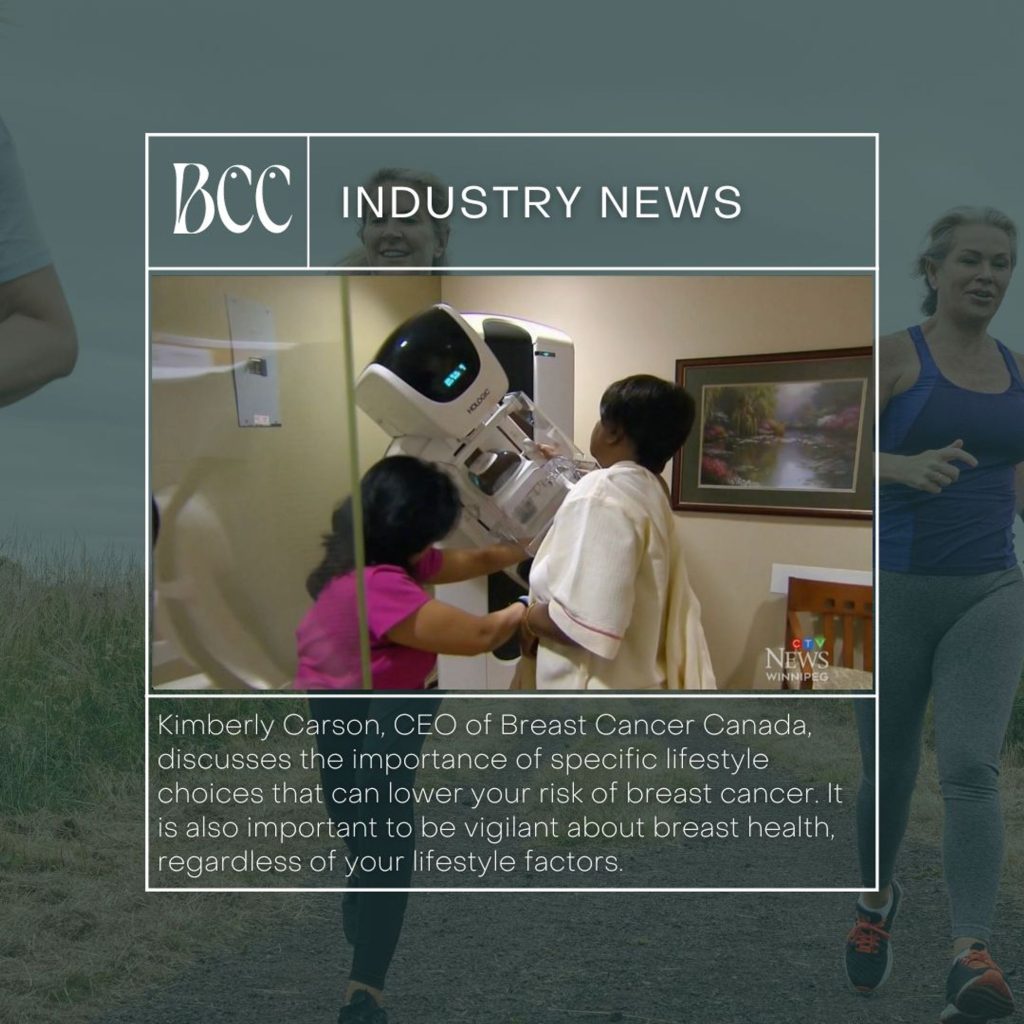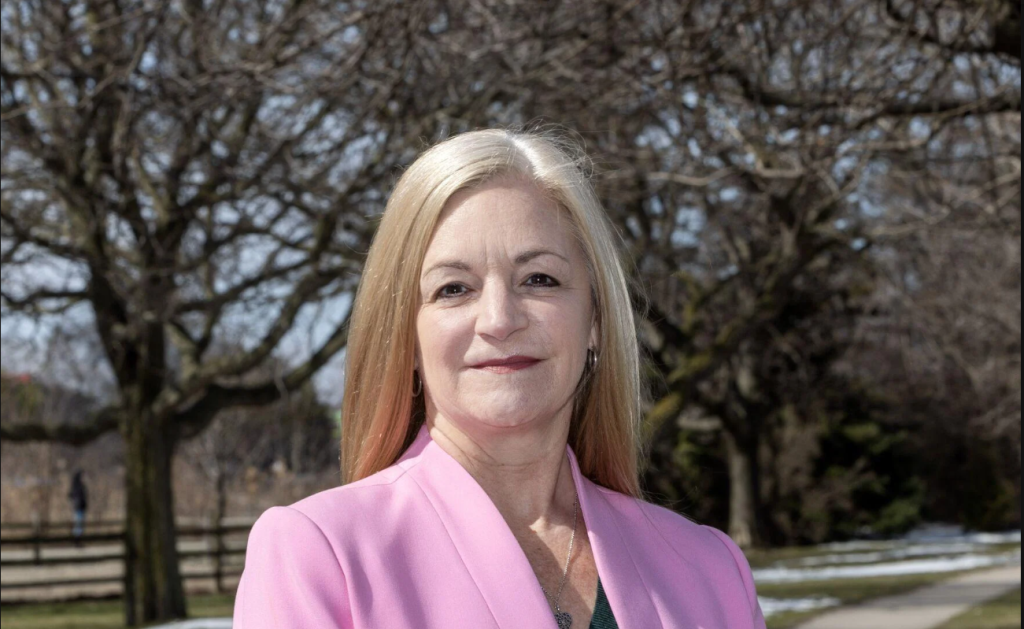1. Welcome back to the TBCRU! Remind our readers who you are and tell us a little about yourself.
My name is Shanshan (Jenny) Zhong, and I am a Ph.D. candidate in the Department of Biochemistry at Western University, working under the supervision of Dr. Shawn Li. I completed my Master’s degree in Microbiology at Beijing University of Chemical Technology. I’m hoping that my current studies will help improve breast cancer treatment in the future.
2. As a senior researcher, why is the TBCRU Studentship Award important to you? How does it allow you to advance your research?
The TBCRU studentship award means a lot to me. It financially supports my studies during the pandemic and allows me to join a big scientific family in which excellent young breast cancer researchers can communicate and support each other. In addition, with this award, I can devote myself to research and have more opportunities to collaborate with other researchers.
3. In a few lines, can you remind us what you are doing and what problems you hope to solve with your research?
It is believed that immune cells in the body can stop the growth of a breast tumour. To avoid being killed by these immune cells (called cytotoxic T cells), breast cancer cells develop an evasion mechanism by producing a protein called PD-L1, which interacts with the T cells by binding to another protein called PD-1. My project aims to decrease this interaction by developing a new drug/inhibitor and evaluating its potential in treating breast cancer.
4. Since we last spoke, have there been any changes to or any advancements in your research?
To date, I have identified a new short synthetic protein (called a peptide) that can effectively disrupt the interaction between PD-1 and PD-L1, resulting in reduced breast cancer cell growth in both Petri dishes in the lab and in animal models. At the same time, I also developed another series of peptides that can make the immune cells active again to help fight breast cancer.
5. Have you had an opportunity to present your research to your peer researchers? Was it at a national or international meeting or in some other way?
Due to the pandemic, I haven’t had a chance to present my research in a national or international meeting. However, I did present my research to peer researchers in the Spring Symposium at Western University and the Biochemistry Grad Seminar earlier this year.
6. Did that presentation setting help you share your breast cancer research with the broader scientific community?
Presentations are always a good way to share research with other scientists from different areas. Now, more and more conferences are held online and I think the virtual techniques will help researchers to communicate with each other more easily.
7. Did any of the feedback or conversations that came about from presenting your research, help you and your research in any way?
I received some great, constructive feedback. My research relates to several areas, including immunology, chemistry, and biochemistry. The scientists from these different areas provided some great suggestions to help me improve my knowledge and provide me with more opportunities to develop my research.
8. Now that you have had some more time with your research, how do you think your research will be applied in a real-world situation?
I am developing a new class of peptide inhibitors that have demonstrated strong therapeutic potential in the lab. Hopefully, as work progresses these can translate to benefit breast cancer patients in the clinic, as well as allowing us to better understand the best ways to target the immune system in breast cancer.
8. Tell us about your involvement in the Breast Cancer Society of Canada fundraising events (Dress for the Cause, Mother’s Day Walk)?
Last year, we held some amazing virtual events, like the One Billion Steps Challenge and Dress for the Cause. We also hosted a silent auction and games night to raise funds and awareness for breast cancer research.
9. What about your participation in other Breast Cancer Society of Canada donor events or tours. How has that impacted your perspective on breast cancer research?
I’ve been involved in many BCSC events over the past two years and had the chance to communicate and collaborate with other BCSC members. It’s so encouraging to know that young scientists are working closely together with the same goal in mind. I also received a lot of support from this community, which motivates me to continually contribute to breast cancer research.
10. What are you currently reading, watching or listening to outside of the lab?
When I am not working in the lab, I enjoy reading and watching documentaries. I am also a big fan of sports, so I watch a lot of games!
Support Researchers like Shanshan (Jenny) Zhong.
PLEASE DONATE TO THE BREAST CANCER SOCIETY OF CANADA AND HELP FUND LIFE-SAVING RESEARCH, VISIT BCSC.CA/DONATE TODAY.




